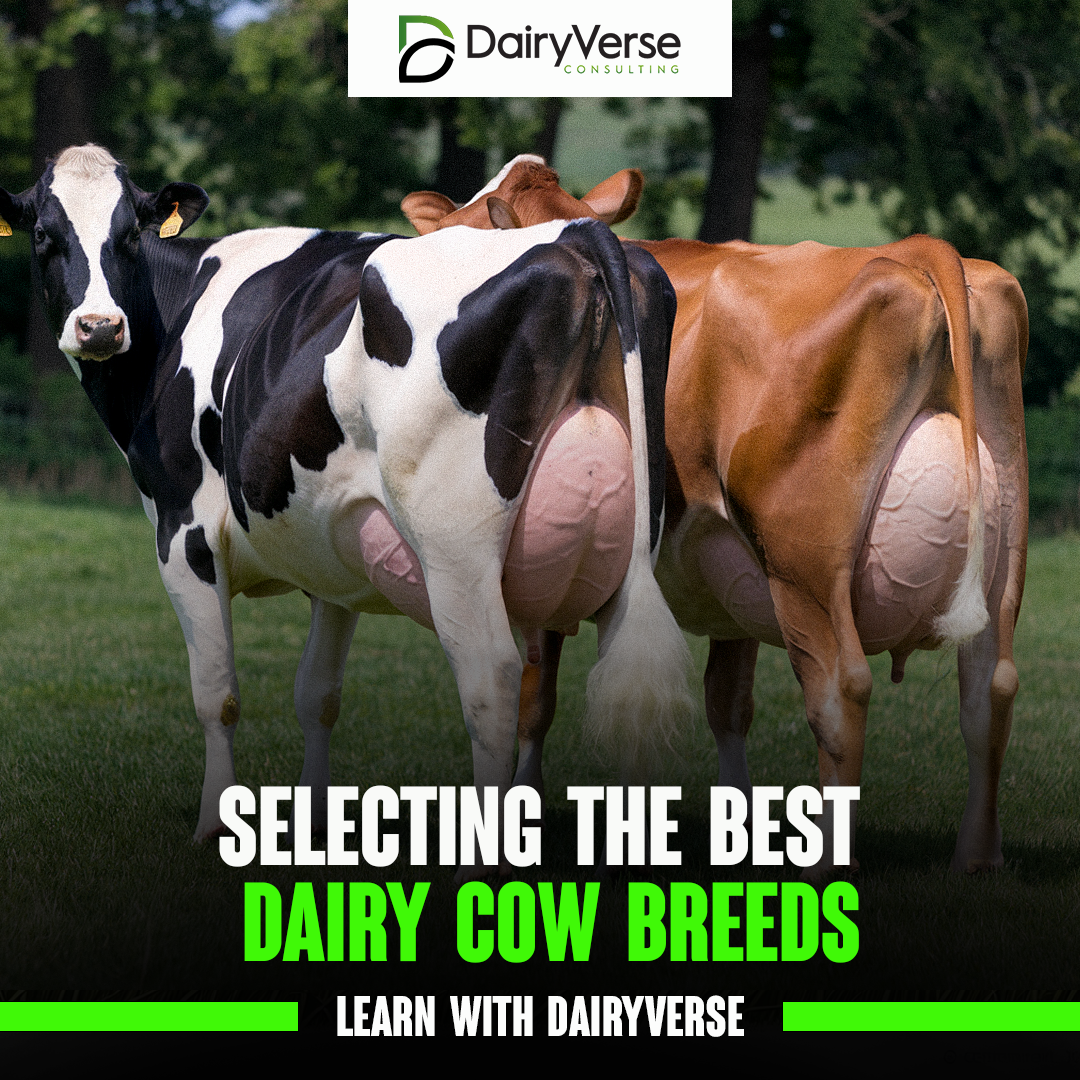When choosing the best dairy cow breed, it’s important to focus on factors like milk production, adaptability to your climate, feed efficiency, and the purpose of your dairy farm. Here’s a comprehensive guide to selecting the right breed for your needs.
Factors to Consider in Choosing a Dairy Cow Breed
- Milk Production Needs
- Some breeds are known for high milk yield, while others excel in quality, such as butterfat and protein content. Choose a breed based on the specific product you aim to produce (e.g., fluid milk, cheese, or yogurt).
- Adaptability to Climate
- Consider your local weather conditions. Some breeds thrive in tropical climates, while others are better suited for cooler regions.
- Feed Efficiency
- Efficient feed-to-milk conversion reduces costs and increases productivity, especially important for small-scale operations.
- Calving Ease and Fertility
- Breeds with good calving ease and higher fertility rates ensure consistent herd growth and less stress on the animals.
- Longevity and Disease Resistance
- Healthier breeds with longer productive lifespans reduce replacement costs and ensure consistent milk production.
Top Dairy Cow Breeds
1. Holstein Friesian
- Milk Yield: Highest among dairy breeds (up to 9,000 liters/year on average).
- Milk Quality: Moderate butterfat (3.5%) and protein levels.
- Adaptability: Best suited for intensive dairy farming systems.
- Notable Traits: High productivity but may require more feed and management.
2. Jersey
- Milk Yield: Lower yield (4,500–6,000 liters/year) but high-quality milk.
- Milk Quality: High butterfat (4.5–5%) and protein content, ideal for cheese and butter.
- Adaptability: Thrives in both tropical and temperate climates.
- Notable Traits: Small in size, efficient feed converters, and known for a gentle temperament.
3. Guernsey
- Milk Yield: Moderate (4,500–6,000 liters/year).
- Milk Quality: Golden-colored milk with high beta-carotene, butterfat, and protein.
- Adaptability: Performs well in warmer climates.
- Notable Traits: Friendly disposition and lower feed requirements compared to larger breeds.
4. Ayrshire
- Milk Yield: Moderate to high (5,500–8,000 liters/year).
- Milk Quality: Balanced butterfat and protein levels (4% and 3.5%, respectively).
- Adaptability: Hardy breed that adapts well to various climates and grazing systems.
- Notable Traits: Longevity and strong udders, ideal for pastured systems.
5. Brown Swiss
- Milk Yield: High (6,000–9,000 liters/year).
- Milk Quality: Rich in protein, ideal for cheese production.
- Adaptability: Thrives in cool climates but can adapt to warmer areas.
- Notable Traits: Strong hooves and disease resistance, making them durable for mixed terrain.
6. Sahiwal
- Milk Yield: Moderate (2,500–3,000 liters/year).
- Milk Quality: High butterfat content, suitable for traditional dairy products.
- Adaptability: Extremely hardy and ideal for tropical climates.
- Notable Traits: Disease resistance and ability to produce on low-quality forage.
7. Gir
- Milk Yield: Moderate (up to 3,000 liters/year).
- Milk Quality: High butterfat, making it ideal for ghee and butter.
- Adaptability: Thrives in hot and humid climates.
- Notable Traits: Strong disease resistance and high fertility rates.
Breed Selection Based on Dairy Farm Goals
- High Milk Production: Holstein Friesian, Brown Swiss
- High Butterfat Content: Jersey, Guernsey, Sahiwal
- Adaptability to Tropical Climates: Sahiwal, Gir, Jersey
- Hardy and Low-Maintenance Breeds: Ayrshire, Brown Swiss
- Premium Cheese and Butter Production: Jersey, Guernsey, Brown Swiss
Conclusion
Selecting the best dairy cow breed is a critical decision for your farm’s success. Evaluate your production goals, climate, and budget before choosing. Whether you prioritize milk yield, quality, or adaptability, understanding the unique traits of each breed will ensure a profitable and sustainable dairy farming operation.
